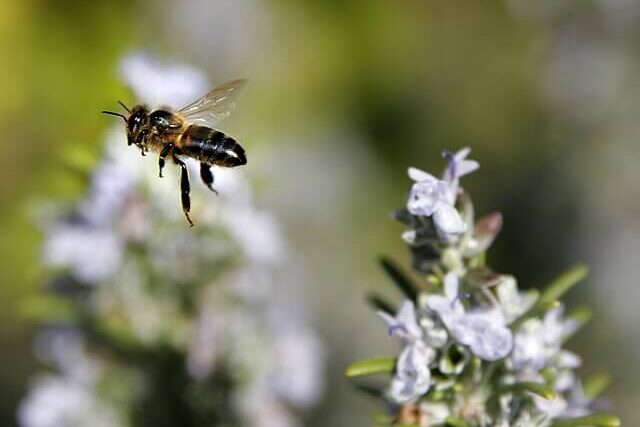
Scientists have warned that fruit growers in the UK are already experiencing reduced yields and lower-quality produce due to the decline of insects.
During a parliamentary inquiry into insect decline and UK food security, Professor Simon Potts from the University of Reading informed MPs on the science, innovation, and technology committee that there is compelling evidence of a pollinator shortfall and a threat to food production.
He said: “That shortfall translates not only into less yield but also lower-quality produce … With poor pollination, you’re getting a shortfall in the production of nutrients, and for the farmers of course that translates into loss of profit.”
Potts specifically referenced a study that highlighted a pollination deficit for gala apples in the UK, which could result in a loss of production worth £5.7 million. He emphasised that interventions to enhance pollinator populations could address this issue.
The study underlined the crucial role of bees and hoverflies as the primary pollinators for apples, which are globally significant fruit crops. The research highlighted the ambiguous link between insect pollination and apple quality, mentioning factors such as seed count, size (which affects marketability), and calcium levels.
Potts said there was minimal data on pollinator trends in the countries from where the UK imports many of its fruits and vegetables. “We’ve got a challenge at home, absolutely … but we have almost no data on the status and trends of pollinators and other beneficial insects in those countries that produce a huge amount of fruit and veg that comes to the UK. That, in terms of policy and practice, is a huge challenge.”
He added: “Many of our crops – mangoes, raspberries, strawberries – are coming in from north Africa, Europe or South America. We are quite vulnerable, not only at home but also overseas.”
Insect pollination contributes over £600 million to the UK economy annually. With more than 75% of food crops dependent on pollination, declines in insect populations have severe implications for global food security. The drivers of insect loss are diverse, but they include habitat loss due to expanding agricultural land, pesticide exposure, and climate change.
A recent study revealed that conservation efforts over the past three decades have failed to halt the decline of insects on British farmland. Potts urged MPs to advocate for a new biodiverse and sustainable farming system. He suggested that farming policies, such as environmental land management schemes, local nature recovery strategies, and biodiversity net gain, could be instrumental in achieving this goal. These policies could incorporate measures aimed at supporting insect populations.
Prof Dave Goulson from the University of Sussex, who was giving evidence alongside Potts, said: “Insects are quite adaptable, and they’ve been around for 480m years and survived all the mass extinction events that have gone before. But, simultaneously, if their home is destroyed, there’s nowhere to nest, they can’t find anything to eat … When you put it all together, then we shouldn’t really be surprised that they’re struggling to cope.”
He reiterated the need to improve the way we farm. “Seventy per cent of Britain, roughly, is farmland, and there is pretty clear evidence that the way farming has changed is the biggest driver of biodiversity declines. So moving towards a more sustainable approach to food production seems to me vital.”
——————————————————————————
At Natural World Fund, we are passionate about stopping the decline in our wildlife.
The declines in our wildlife is shocking and frightening. Without much more support, many of the animals we know and love will continue in their declines towards extinction.
When you help to restore a patch of degraded land through rewilding to forests, meadows, or wetlands, you have a massive impact on the biodiversity at a local level. You give animals a home and food that they otherwise would not have had, and it has a positive snowball effect for the food chain.
We are convinced that this is much better for the UK than growing lots of fast-growing coniferous trees, solely to remove carbon, that don’t actually help our animals to thrive.
This is why we stand for restoring nature in the UK through responsible rewilding. For us, it is the right thing to do. Let’s do what’s right for nature!
Donate today at https://naturalworldfund.com/ and join in the solution!

